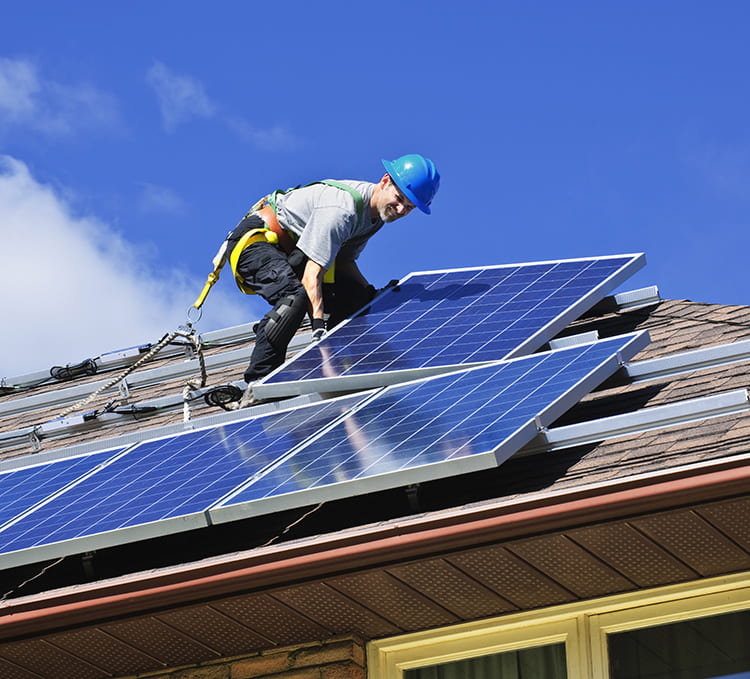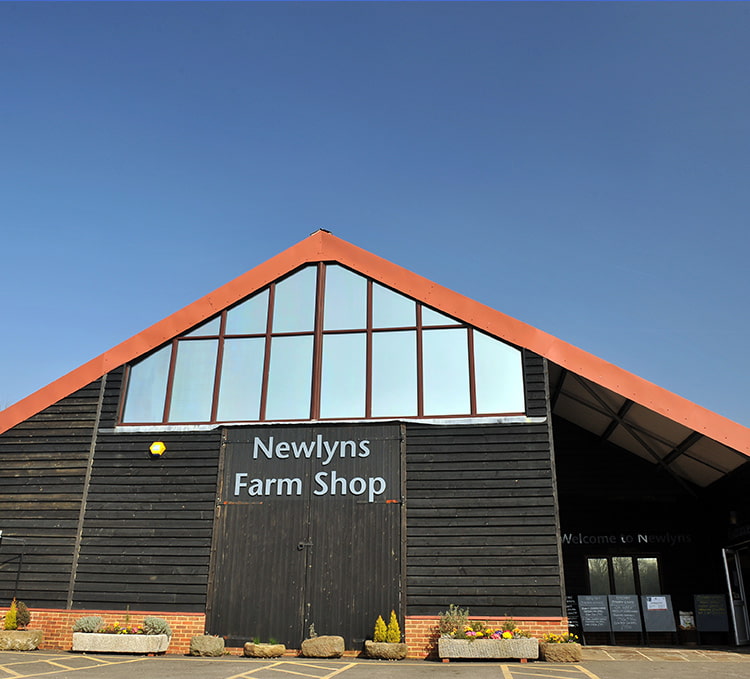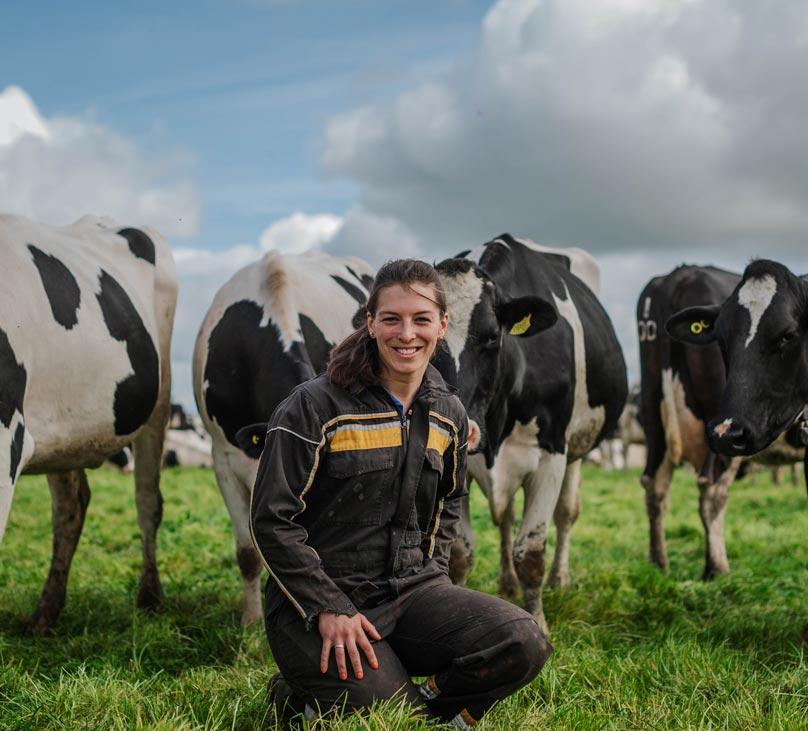Change your business address
If you're a full access user, you can update your business, registered, mailing and personal addresses within Online for Business and the Business banking app.
Read below how we have supported farmers on their journey to becoming more sustainable.



Trafalgar Fisheries, based at Barford Fish Farm within the Longford Estate, Salisbury, is the biggest producer of rainbow trout for both Waitrose and Abel & Cole. It has also supplied food wholesalers for more than 40 years.
The funding will be used to implement the latest recirculation technology to improve production and modernise the natural rearing process.
In recent years, rising water temperatures in the River Avon have seen an increase in fish mortality rates caused by exposure to infectious diseases. The new technology utilises borehole water, to create a stable environment for the fish, improving their quality of health and welfare.
Trafalgar Fisheries is a long-standing customer of over 40 years. Funding to support this project has been provided through the Clean Growth Finance Initiative.
FW & RJ Simcock is a dairy farm in Herefordshire with 600 milking cows. Established for 40 years, it has invested in improvements that not only improve energy efficiency, but also create a better environment for the cattle.
With the help of a loan from us, the farm has installed a new milk robot system that’s expected to be approximately 30% more efficient than the previous system on an energy expended-per litre of milk basis.
The system comprises:
Environmental benefits of the new system compared to the existing milking parlour and infrastructure include reduced water use and replacing red diesel with electricity. These are expected to reduce labour and produce energy savings too.
The farm is a long-standing Lloyds Bank customer. It secured £900k in funding for the improvements under the Clean Growth Finance Initiative, which offers discounted finance to Commercial Banking clients investing in a lower carbon future.
Mayfield Eggs counts most of the Oxford University Colleges and two-Michelin star restaurant Le Manoir aux Quat’Saisons among its customers. As well as producing free-range eggs, the Oxfordshire farm, which has been established for over 60 years, grades, packs and sells them too. Run by James Lyall, it’s very much a family affair, with his parents, wife and three children all involved in the business.
The farm is cutting down on its need for transport as well as making egg grading more efficient, thanks to funding from the bank. To replace its current small, off-site packing station, it has almost completed a new, purpose-built energy-efficient building. This will mean all the eggs can be packed on the farm rather than needing to be transported 10 miles a day to be packed.
Plus, Mayfield Eggs has been able to buy a new egg-grading machine to replace its 40-year-old one. This will mean more eggs can be graded per hour, saving labour, time and energy thanks to running the machine for shorter periods each day.
Mayfield Eggs has been a Lloyds Bank customer for seven years. Under our Clean Growth Funding Scheme, we provided a £480k loan to buy the new machine and egg packing station.
“I’d like to think this is just the start,” says Lloyds Bank Relationship Manager Sarah Beckley. “James and I have already talked about the need to purchase an electric van as he delivers into central Oxford and there are other plans to make changes to the farmhouse in the future.”
Harrington Farming Estates, which operates a 2,500 acre estate in Lincolnshire, has invested in solar power as part of its new 32,000 bird free-range poultry site.
Thanks to a £41.8k loan from the bank, Harrington Farming Enterprises installed a roof-mounted photo voltaic system as part of the new poultry site, which was completed in November 2018. This will generate an estimated 41800 kwh of energy per annum, cutting carbon emissions by 11.8 tonnes.
The bank provided a £41,800 loan under our Clean Growth Finance scheme to fund the full purchase price of the solar panels.
Moving forwards, the farm is potentially looking to expand its poultry operations further by building another 32,000 bird shed.
A century-old family farm is investing in a lower carbon future with a new combined heat and power boiler.
Run by the Janaway family for four generations Newlyns is a mixed farm in the picturesque village of Upton Grey in Hampshire, with arable crops, beef cattle, pigs and flocks of sheep.
Newlyns’ animals are reared to the highest standards of welfare, with a focus on traditional breeds and have complete traceability from field to shop.
Alongside the farm, Newlyns has retail units, a café and farm shop. As well as selling their own meat they have a dedicated Cheese Room stocking 95% British Cheese, and a fishmonger sourcing fish from Shoreham. They run cookery courses, and this year, offered a Christmas tree recycling service to customers.
Newlyns is increasing its use of sustainably produced energy and reducing its reliance on the grid, with energy for the farm shop and café provided by combined heat and power (CHP) from two CHP boilers.
These will work alongside other biomass boilers already in place, so that Newlyns will be running predominantly on sustainably produced heat and power. The CHPs use sustainably sourced biomass fuel. The biomass boilers will also reduce cost to the business in the longer term.
We provided the farm – a customer for some 15 years – with a £150k loan to buy and install the CHP system. This investment in a lower carbon future was provided under the bank’s Clean Growth Finance scheme.
“It’s important for Newlyns to consider environmental impact. We have a very strong relationship and they are always looking at how they can increase their customer offering around the farm shop and retail units. We will do further projects.” Victoria Read, Lloyds Bank Commercial Banking Relationship Director.
Farming for the future: How we’re supporting agriculture’s low-carbon evolution with Soil Association Exchange
Lloyds Bank has partnered with the Soil Association Exchange - a service which helps farmers to improve their environmental performance, and measure and monitor their progress.
One of the first to benefit was Zara Dorrington, whose family have been farming in Lincolnshire for nearly a century.
She was visited by a Soil Association adviser, who audited the farm’s operations to identify sustainable financial and environmental strategies for the future, with a focus on soil health, carbon emissions, water quality, biodiversity, animal health and social impacts.
It’s an initiative that Zara, of White House Farm in Lincolnshire, was keen to join.
Located in Bourne, the fourth-generation, 800-hectare dairy and arable farm has a herd of nearly 300 cows producing high-quality milk exclusively for Arla.
“Mixed livestock and arable farming has always been my passion and I’ve always aimed to farm efficiently and sustainably. But it can be hard to record certain aspects of sustainability and you can end up with a big slew of data that’s hard to interpret. Farming is under increasing scrutiny, but it doesn't have to be daunting. It’s an exciting new era and we need to be open to the help and guidance that’s available.”
And Zara says that working to improve sustainability can also boost a farm’s resilience, which is even more important as we face up to the challenge of climate change.
She said: “With climate change bringing all different types of weather systems, having a very good soil structure with plenty of organic matter means that, if it's suddenly very dry or very wet, the land is much more able to adapt because it’s healthier.”
Zara said: “We know we’re improving, but you can only take that message to customers if you've got the data to back it up. The Soil Association adviser had a different approach. They took the time to get to know us and it means that the data and direction you get at the end of the process is much more relevant and meaningful, rather than just being very generic.”
“We now have this fabulous dashboard that covers soil health, energy use and other sources of carbon, as well as areas where we might be capturing carbon too. It’s shown us how we can start to better integrate the livestock and arable aspects of the farm, so they work in harmony together.”